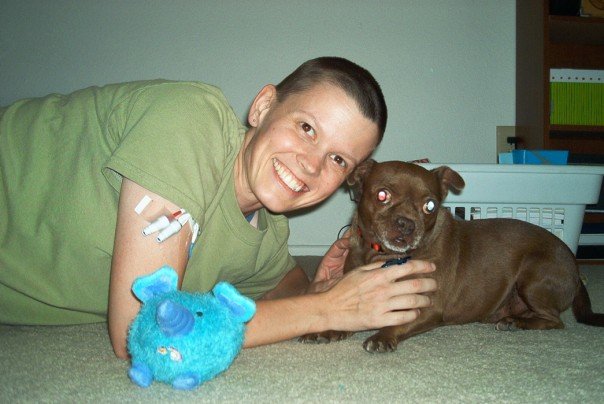Four years ago, I wrote a post on Facebook about cancer prevention. It’s full of frustration. Wrapped up with the frustration—though not so evident in the writing—is a solid dollop of “I get it.”
A month ago, I lost a good friend to cancer. In the month since then, I’ve learned about three more diagnoses (that I can think of off the top of my head). I just learned about one of those today, and though I know very few details, it doesn’t sound promising.
And so I am reminded why I spend extra money on organic food, why I strive to eat a healthy, plant-based diet (though I could still do much better), why I clean with baking soda and vinegar, why I make my own personal care products, why I spend the money and the time to use and care for glass and stainless steel over plastic for myself and my son, why I make time to exercise, why I keep sharing information about how bad all this shit is for you in hopes that someone will see it and make a small change followed by another and another.
I don’t want to do it again. I don’t want people I know to do it. I don’t want people I don’t know to do it. The answer is in us, my friends. We don’t need to wait for a cure; we need to take care of ourselves.
And so, on my soapbox I say again, why fund research if we’re not going to use the information the research gives us? Take care of your body, people. It’s the only one you get.
All three of the people referenced in the first paragraph are gone.
Who knows how many more people in the years since then have been diagnosed? (And, on a tangent, are crowdsourcing funding for their treatments?! Disgusting. Not that they’re doing it—that it’s necessary.)
It’s easy to say, “Fuck it. Everything causes cancer.” I get it. Because it’s everywhere. There have been moments when I’ve read about another thing that I hadn’t thought about (I’m looking at you, tea bags!) and felt like it’s all futile.
In a funny-not funny way, giving up is letting the terrorists win. (They’re not actually terrorists, but the sentiment is otherwise accurate.)
If we collectively said, “I’m not heating food in plastic,” there would be fewer plastic containers, dishes, microwave-in-bag, etc. And it would be a little bit less “everywhere” and it would be easier to find affordable alternatives.
If we collectively said, “I won’t use products on my body that have ingredients with known adverse health effects,” there would be more products with less garbage in them. And it would be a little bit less “everywhere” and it would be easier to find affordable alternatives.
And on and on.
Prevention is: “You don’t have cancer.”
Early detection is: “You have cancer but as far as we can tell, you haven’t had it for long. Because human brains want to assign order to this, we feel like it’s all in one place just because it’s new but scientifically, cancer can metastasize immediately or take years. You’ll have surgery and/or chemo and/or radiation. Whichever treatment you get, there are horrible immediate side effects, and potential (and likely) lifelong side effects, some of which are debilitating, and some of which make it more likely that you’ll get a different cancer later. But regardless of any of that, we’ll call it a win as long as the cancer we just found responds and doesn’t return. Oh, and all of this will cost at least tens of thousands of dollars, often hundreds of thousands. You’ll lose friends (because people freak out and run away). Depending on the treatment and your age, you might lose your fertility. [And on and on.] But the good news is, you caught it early!”
Which would you prefer?
(Much of the time, early is better than late, because left to its own devices, cancer will certainly spread eventually. But it doesn’t necessarily need time to do that.)
We don’t have all the answers. We don’t have total control over it. But we have more than we’re often willing to admit.
There’s a laundry list of benefits to taking care of yourself. Is this one motivational? Make ONE change. Stick to it. Own it. When it becomes part of your routine, make another. And on and on.
I did it. I’m still doing it, one change at a time. You can, too. (Sometimes there is regression. Life happens. Regroup and carry on, just like with everything else.)
(Tomorrow’s post continues this thread, but with regards to why we are excessively burdened with these decisions.)

Thanks for writing this. I used to be pretty good making personal hygiene products, especially when it was just baby #1. I’ve gotten progressively lazier. This post was the kick in the butt reminder I needed. I know what I’ll be working on this weekend. Thank you!
You’re welcome! It’s hard! Not hard to make them but to make the time or summon the energy when there are other easier alternatives.